By: Kurnia M Hudzaifah (MINA Journalist)
Calamity is a word that is often heard in our ears, recently a devastating earthquake with a magnitude of 7.8 struck Turkey and Syria, which claimed tens of thousands of lives and hundreds of thousands of others suffered.
Earthquake is an calamity where the surface of the earth vibrates, and this can cause damage to buildings, in the knowledge that earthquakes are called seismology.
Seismology explains that an earthquake is an event of propagation or propagation of earthquake waves that reach the earth’s surface due to the surprising and sudden release of potential energy that has layers beneath the earth’s surface. This incident came under the provision of Allah Subḥānahu Wataʿālā, and cannot be rejected, and every incident that befalls human beings is called a disaster.
Also Read: Sadaqah, A Simple Act with Extraordinary Virtues: Dr. Wahyudi KS
In the Big Indonesian Dictionary (KBBI) disaster has the meaning of a sad event or event that befalls, either a person or a group, as well as disasters both natural factors or human negligence.
In the Qur’an and Hadith the word disaster can be found in various terms, one of which is calamity. The word disaster in the Qur’an generally refers to something neutral, not negative or positive, even though there are several verses that associate it with something negative. But in Indonesian the word disaster is always interpreted as something negative.
So the term of the Qur’an, anything that befalls humans is called a “disaster”, whether in the form of good or bad for humans (QS. Al-Hadid: 22-23). The term calamity which can include both good and bad is also mentioned in the following hadith:
From Shuhaib, he said, the Prophet said: It is amazing what the believers are doing. Indeed, all things are good, and it will not happen except for those who believe. If he is rewarded with favors, he is grateful and that is good for him. If he is hit by a disaster, he is patient then that is also good for him. (HR. Muslim).
Also Read: The Dynamics of Living in a Muslim Community in the Modern Era
Then, in His word Allah explains, that if the “disaster” is in the form of good, then it comes from God, and if the “disaster” is in the form of badness – which is then called a disaster, then it is due to human actions themselves. (QS. An-Nisa: 79).
So the Quran also clearly describes that not all disasters are disasters. A calamity is called a disaster and has a negative meaning, namely a disaster that brings badness to humans, and it is the result of human actions themselves, not from God, even though in plain view the disaster occurs in nature.
According to a Muslim scientist of Persian nationality, Imam Fakhruddin Ar-Razi, what is meant by a disaster is something that the soul does not like, such as the extinguishing of a lamp when it needs light. Thus, the meaning of disaster can be understood to occur to individuals or groups.
This is emphasized in the word of Allah Subḥānahu Wataʿālā Al-Quran At-Taubah verse 51:
Also Read: The Meaning of “Minal Aidin wal Faizin”
قُلْ لَّنْ يُّصِيْبَنَآ اِلَّا مَا كَتَبَ اللّٰهُ لَنَاۚ هُوَ مَوْلٰىنَا وَعَلَى اللّْونهِ فَلْيَتََِّْلِ
Meaning: “Say (Muhammad), nothing will happen to us except what Allah has ordained for us. He is our protector, and only to Allah do the believers submit.”
How do we as Muslims respond to disaster? calamities that occur remind believers to truly return to His way, namely to repent, reflect and muhasabah on anything that has been done, both as individuals between us as servants of Allah Subḥānahu Wataʿālā as the Khaliq for the behavior and sins committed.
Ibnul Qayyim Rahimahullâh once said, “In fact, all (disasters) that befall those who believe in (practicing the religion) of Allah Subḥānahu Wataʿālā Ta’ala are always accompanied by an attitude of pleasure and ihtisab (expecting a reward from Him). Even if they don’t have an attitude of pleasure, then their grip is an attitude of patience and ihtisab. This (all) will lighten the weight of the disaster. Because, every time they witness (remember) the reward (kindness), it will be easy for them to face the hardships and calamities.
Also Read: The Atrocities of Zionist Israel During Ramadan
Exam Wisdom
Examination is a process in which a person will step in a better direction and be able to know how much ability shows the success of the business that has been done if the test is faced with patience, sincerity, and gratitude.
However, a person will face bad results because the test is not used as a rope to tie the expected dream, as a wise man said “with a test one can be glorified or humiliated”.
Therefore, decorate ourselves with knowledge and piety, to face all tests, a Muslim must be sure that everything will be beautiful in life.
Also Read: Imaam Yakhsyallah Explains the Interpretation of Quran Surah Asy-Shura Verses 13-15
Brother, say “the test belongs to Allah Subḥānahu Wataʿālā and don’t ever be suspicious of a test given by Allah, because life will be happy with the grace and blessing of Allah Subḥānahu Wataʿālā.
Trials are the greatest fortune from Allah Subḥānahu Wataʿālā, gratitude must be said when praying, believers always have the principle that the tests that Allah gives are not much compared to those of the past and believe that every human being has a different path in life, including tests. There are those who are tested with poverty, wealth, rank, and position. The weight of the exam problems varies according to the ability of His servant, ranging from mild, moderate to very heavy categories.
In a history it is told, one day a friend asked Rasulullah Shalallahu Alaihi Wassalam, “O Messenger of Allah, who is the person with the most severe trials?” He replied: “The prophets, then the righteous people, then those who came after them sequentially based on their level of piety. A person will be given a test according to the level of his religion. If he is strong, added trials for him. If he is weak in his religion, his trials will be lightened. A believer will still be given trials, until he walks on this earth without the slightest sin.” (Reported by Bukhari).
This hadith shows that the weight of the test given by Allah Subḥānahu Wataʿālā is multilevel. The higher the degree of faith, the more severe the test a person experiences. Hopefully, we can pass all the tests that Allah Subḥānahu Wataʿālā has given, and be able to take lessons from it, continue to strive to be human beings who live life according to the Shari’a of Allah Subḥānahu Wataʿālā. (T/RE1)
Also Read: Imaam Yakhsyallah Mansur: Mosques Play a Central Role During Ramadhan
Mi’raj News Agency (MINA)






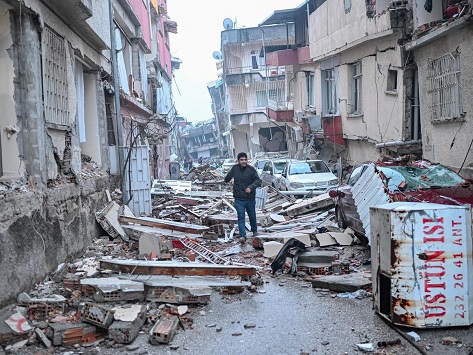










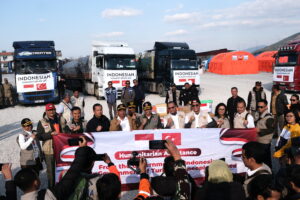
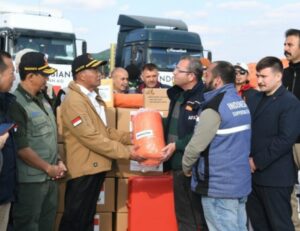

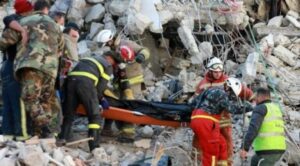






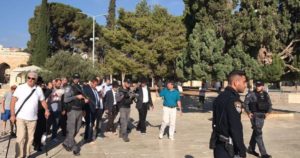






 Mina Indonesia
Mina Indonesia Mina Arabic
Mina Arabic